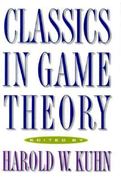Question
The following is an electric rate tariff for larger industrialcustomers Meter Charge: $680/billing period Energy Charge $0.05 for the first 100,000 kwh $0.06 for the
The following is an electric rate tariff for larger industrialcustomers
Meter Charge: $680/billing period
Energy Charge
$0.05 for the first 100,000 kwh
$0.06 for the next 400,000 kWh
$0.075 for all remaining kwh
$5.45 per kw demand charge per billing period
A 20% energy charge fee is added to the total energy charges if thepower factor of the
plant is below 0.85
The customer?s electric usage data is
ELECTRICAL ENERGYCONSUMPTIONPEAK DEMAND
Jan275,0001,091
Feb425,3871,643
March 642,7842,590
April535,9082,200
May688,4142,671
June783,9823,682
July821,4193,764
August742,1493,791
Sept893,6343,770
Oct698,5762,258
Nov689,7192,315
Dec591,3122,401
It is suggested that you use a spreadsheet to simplify thefollowing problems. Using the
utility rate schedule described above:
1. What are the customer?s bill for the year if the power factorover the year is 90%
2. Compare that result to the customers bills if the power factorfor all months of
the year is 80%
3. Find the customers load factor for each month
4. What is the customers average cost of electricity (PF=0.8) in$/kW hours
5. If the customer reduces power use by 1kWh in July but does notreduce demand,
how much is saved. (PF=0.8)
This customer now performs an energy audit and finds the savings inusage from a number
of projects. Find the customer?s savings in dollar per year for thefollowing projects.
Assume the customer has a PF=0.8 in all cases
6. This customer reduces power use by 10 kW by installing moreefficient exit signs.
7. The customer shuts down 50% of their parking lot lights frommidnight to 6 AM,
reducing power usage during that period by 100 kW.
8. The customer?s business requires the operation of a 250 kW heattreatment oven
for 3 hours each weekday, and will be moving this operation fromthe first shift,
during the day, to the third shift from 11PM to 7AM
For many customers, an added element is added to the bill, and thatis a lower cost for
power purchased at night. Here in Northern Illinois, largecustomers were, for decades
on a rate of $0.022/kWh for all power used at night. Adding this tothe customer rates
used above,
9. Now how much will the customer save by moving the operation ofthe 250 kW
moving to the third shift
Step by Step Solution
There are 3 Steps involved in it
Step: 1

Get Instant Access to Expert-Tailored Solutions
See step-by-step solutions with expert insights and AI powered tools for academic success
Step: 2

Step: 3

Ace Your Homework with AI
Get the answers you need in no time with our AI-driven, step-by-step assistance
Get Started


